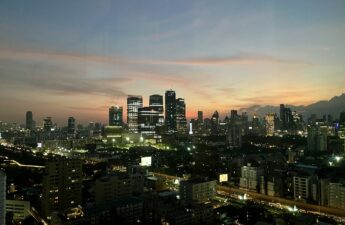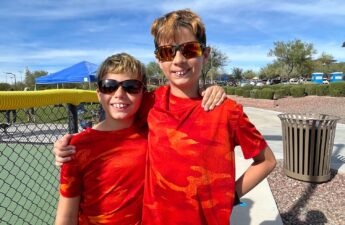Many people are shocked that we chose to stay in Nicaragua when borders closed, and flights were stopping due to COVID-19. Many people were shocked when we told them we were going to Nicaragua.
In the United States, most people have a negative connotation of Central American countries. The stereotypes of drug cartels and violent crimes are so strong that even we were nervous the first time we visited Central America. While Central American countries are plagued with these problems, so is the United States and most every other country in the world.
We feel safer here in San Juan Del Sur than we do in parts of Atlanta and other cities around the United States. We have visited all the countries in Central America. They are beautiful countries and the people are some of the friendliest and hard-working people we have ever met.
In Nicaragua, most people sustain themselves by owning small businesses, including various stores, farming, and cooperatives. Most people depend on daily or weekly income to be able to buy food and other basic items. This is likely a reason that Nicaragua has not officially “shut down” like many other countries around the world. The people of Nicaragua are still recovering from a drastic economic decline that arose from government protests in 2018. Tourism never recovered from that incident and now COVID-19 has stunted the country’s recovery.
The past two months in Nicaragua during the COVID-19 pandemic have been uneventful for us. The first case of COVID-19 in Nicaragua was officially confirmed on March 18, 2020. Mixed information comes out from the media, so it is difficult to ascertain an accurate number of cases, but that is the case in most places around the world. We heard that grocery stores in the capital city of Managua were picked over when the first case of COVID-19 was announced, but now they are fine. Here in San Juan Del Sur, we have not had difficulty finding toilet paper, hand sanitizer or meat.
The government declared a Sanitary alert in January due to COVID-19. In March, a woman with a clipboard knocked on our door and told us that we should be taking extra care to wash our hands frequently. This was part of a government education campaign by health workers and volunteers. It was reported that they visited over a million homes at the end of March. Also, representatives from the World Health Organization and the Pan American Health Organization have stated that Nicaragua is following guidelines, but they have not been implementing any measures beyond those guidelines. The government has stated that it is getting help from Cuba and, who is sending doctors and medicine to help deal with COVID-19
Many people are criticizing Daniel Ortega and his government for not taking stronger measures to fight COVID-19. Borders are still open (Although neighboring borders are closed), schools are in session and sporting events are still happening. We have heard that in the capital city of Managua people are wearing masks, washing hands or hand sanitizing before entering stores, and social distancing. When we go to the grocery store here in San Juan Del Sur they spray our hands with sanitizer and they have protective shields for the cashiers. Although many stores here have closed and many store workers are wearing masks and offering hand sanitizer, we still see many people around San Juan Del Sur without masks who are not social distancing.
This pandemic is unlike anything we have ever seen. Only time will tell what works and what does not. Governments are in an impossible position balancing reducing the number of COVID-19 cases and making sure their people can survive the economic struggles they now face because of COVID-19.
We can only speculate how this will unfold in the next several months. We cannot leave right now because there are no flights and the borders around us are closed, but we do not feel unsafe here. We are glad we decided to stay. We hope that things remain stable here and that the world begins to open back up soon.



